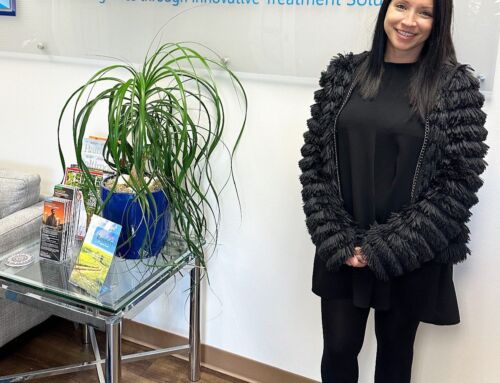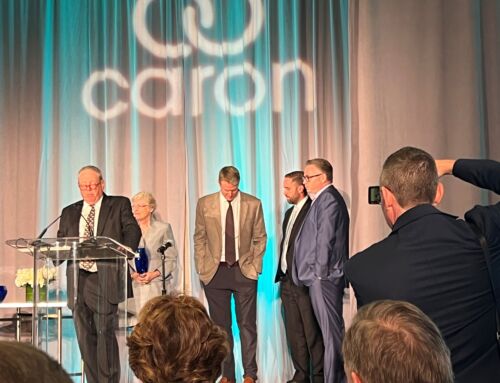Addiction is a complex, chronic health condition that is multifaceted and affects not only the individual struggling with substance use disorder but also their entire family. Therefore, it is vital that through the process of addiction treatment that recovery is stressed for the individual suffering but also for the family members that have been impacted. Family healing must be emphasized because the family members and their relationship with the identified patient play a pivotal role in that individual’s recovery process but also in the journey of healing for the entire family unit.
Issues in Family Systems that Drive Addiction
Addiction is often referred to as a “family disease” because the destructiveness of drug and alcohol addiction extends far beyond the individual with substance use disorder. Family members, friends, and other loved ones and close confidants are also negatively impacted, often experiencing trauma, emotional turmoil, strained or broken relationships, lack of trust, financial stress, deceased mental health, increased anxiety and worry, and a general sense of chaos. The ripple effects of addiction can manifest in various ways for the family members and loved ones of an addicted person, including:
Enabling Behavior
Family members may inadvertently enable to addicted individual by providing financial support covering up for their addiction or behaviors, taking care of their responsibilities, or ignoring the problem altogether, thus perpetuating the cycle of addiction.
Codependency
Codependent relationships can develop within families, where loved ones become overly focused on the addicted loved one’s needs, often neglecting their own well-being.
Emotional Distress
Family members may experience a wide range of emotions when their loved one is suffering from addiction, including anger, guilt, shame, anxiety, and depression, as they continually witness and experience their loved one’s destructive behavior.
Breakdown of Communication
Addiction often leads to a breakdown in communication within families, with open and honest discussions becoming increasingly difficult as trust erodes.
Family Roles and Dynamics
Family roles may become distorted as members adapt to the addicted individual’s behavior, leading to unhealthy patterns and expectations.
Trauma
Family members can become just as traumatized as their loved ones due to addiction, including trauma from previous generations who have experienced addiction. Family members often will develop trauma responses due to their loved one’s addiction.
The Importance of Family Addiction Treatment
Recognizing the importance and significance of focusing on family addiction treatment is crucial. First, it is important that the family members begin a journey of healing alongside but independently from their addicted loved one. This way, the member of the family can heal individually, and begin to heal the family unit. Seeking services such as therapy, counseling, support groups, and ongoing support is key. Second, this will allow the family to engage with their loved one’s addiction treatment and recovery process. Family members are key stakeholders in the life of their addicted loved ones, and if healing themselves, can be their loved one’s biggest asset in recovery. When family members begin their own individualized path the healing, they become better emotional support for their addicted loved one. Therefore, healing the family unit in addiction treatment and addiction recovery is crucial for several reasons:
- Support System: Family members are often the closest and most important support system an addicted person has. When family members and loved ones are involved in the treatment and recovery process, they can provide invaluable emotional support and encouragement.
- Breaking the Cycle of Addiction: Addiction can be intergenerational, meaning it often runs in families. There is much science to demonstrate that there is a large genetic component for addiction. By addressing the family dynamics and seeking healing for the family unit, families can interrupt this cycle and prevent future generations from falling into the same patterns of addiction.
- Identifying Triggers and Emotional Stressors: Families can help identify triggers and stressors that often contribute to the addicted loved one’s substance use. This insight can be instrumental in developing relapse prevention strategies, building resiliency, and learning to navigate emotionally difficult situations.
- Rebuilding Trust: Addiction always erodes trust within families. Family healing processes can help rebuild trust by fostering open and honest communication, accountability, and forgiveness.
- Promoting Self-Care: When families focus on their own healing, they are better equipped to set boundaries, practice self-care, avoid codependent behaviors, and have open and honest conversations.
- Becoming a Positive Influence: If members of the family unit engage in their own recovery and healing process, that can be incredibly powerful for an addicted family members as they are going through treatment and beginning a journey of recovery. When family members are doing their own work emotionally and mentally, they are showing through their actions they are willing to go through difficult things in order to heal, mirroring the same path their addicted loved one must walk through treatment to find recovery.
- Accountability: Family members that are healing are able to provide honest and loving accountability for their addicted loved ones. Family members that are able to help keep their loved one accountable in early recovery are means of great support to help them continue their sobriety.
What to Expect With Family Addiction Treatment
To promote family healing in addiction treatment and recovery, there are several strategies, approaches, and options that can be employed and implemented:
- Education and Awareness: Families should educate themselves about addiction, its causes, and the best ways to support the recovery process. This can often come from the addiction treatment center or rehab where their loved one is receiving treatment, but can also come from a therapist or counselor, from books or videos or webinars, or from family or community support groups. There are numerous options to help family members educate themselves on addiction, many of them free.
- Family Therapy and Counseling: Seeking assistance and support from a trained clinical professional such as a therapist, counselor, psychiatrist, or family recovery coach that specializes in addiction and family dynamics can be highly beneficial. Family therapy, and individual therapy or counseling, provides a safe space for communication and healing.
- Community Support Groups: Family support groups or community support groups, such as Al-Anon or Nar-Anon, offer a forum for family members to share their experiences, gain insight from others, and find community, connection, and solace in knowing they are not alone dealing with a loved one suffering from addiction.
- Setting Healthy Boundaries: Setting and maintaining healthy boundaries is crucial for both the addicted loved one and their family members. Boundaries help protect against enabling and codependent behaviors, offer emotional safety and security for the family member setting the boundary, and can aid in accountability for the loved one suffering from addiction.
- Self-Care: Encouraging family members to prioritize self-care and their own physical and emotional well-being is essential. When family members are emotionally and mentally healthy, they can provide more effective support for their addicted loved ones.
- Engagement in Loved One’s Addiction Treatment: It is vital that any rehab or addiction treatment center provide comprehensive care for their patients, which includes providing family programming. This may look different between addiction treatment facilities, as some will offer family therapy and counseling, some may offer family sessions, some may offer family education programs, or some may offer truly comprehensive family work. Typically, it is some combination of these, but any treatment center should be making the highest effort to both treat the identified patient suffering from addiction as well as treating and supporting the family unit. Therefore, it is vital that family members engage in their loved one’s addiction treatment process throughout the entire continuum of care.
There is no question that addiction is a family disease, and healing within the family unit is integral to the recovery process. Each member of the family, including the loved one suffering from addiction, must find and engage in their own recovery process, which in turn will prepare the family unit to begin a process of healing. By addressing the impact of addiction on families, breaking unhealthy patterns and maladaptive behaviors, and fostering open and honest communication, families can become a vital source of strength and support for their loved ones as they walk the path of sobriety. Additionally, family healing not only benefits the addicted loved one but also helps families heal as a unit, aiding in rebuilding trust, improving individual self-care and well-being, and preventing the cycle of addiction from perpetuating through future generations. In order to foster a healthy and loving environment to support recovery from addiction, family healing is a crucial element for the individual to achieve long-term, sustainable recovery as well as for the family to achieve health and well-being for all loved ones involved in the family unit.
Family Addiction Treatment with Maryland Addiction Recovery Center
If you or someone you know needs help for addiction or co-occurring disorder issues, please give us a call. Maryland Addiction Recovery Center offers the most comprehensive dual-diagnosis addiction treatment in the Mid-Atlantic area. If we aren’t the best fit for you or your loved one, we will take the necessary time to work with you to find a treatment center or provider that better fits your needs. Please contact us at (866) 929-4318 or email our team at info@marylandaddictionrecovery.com.






